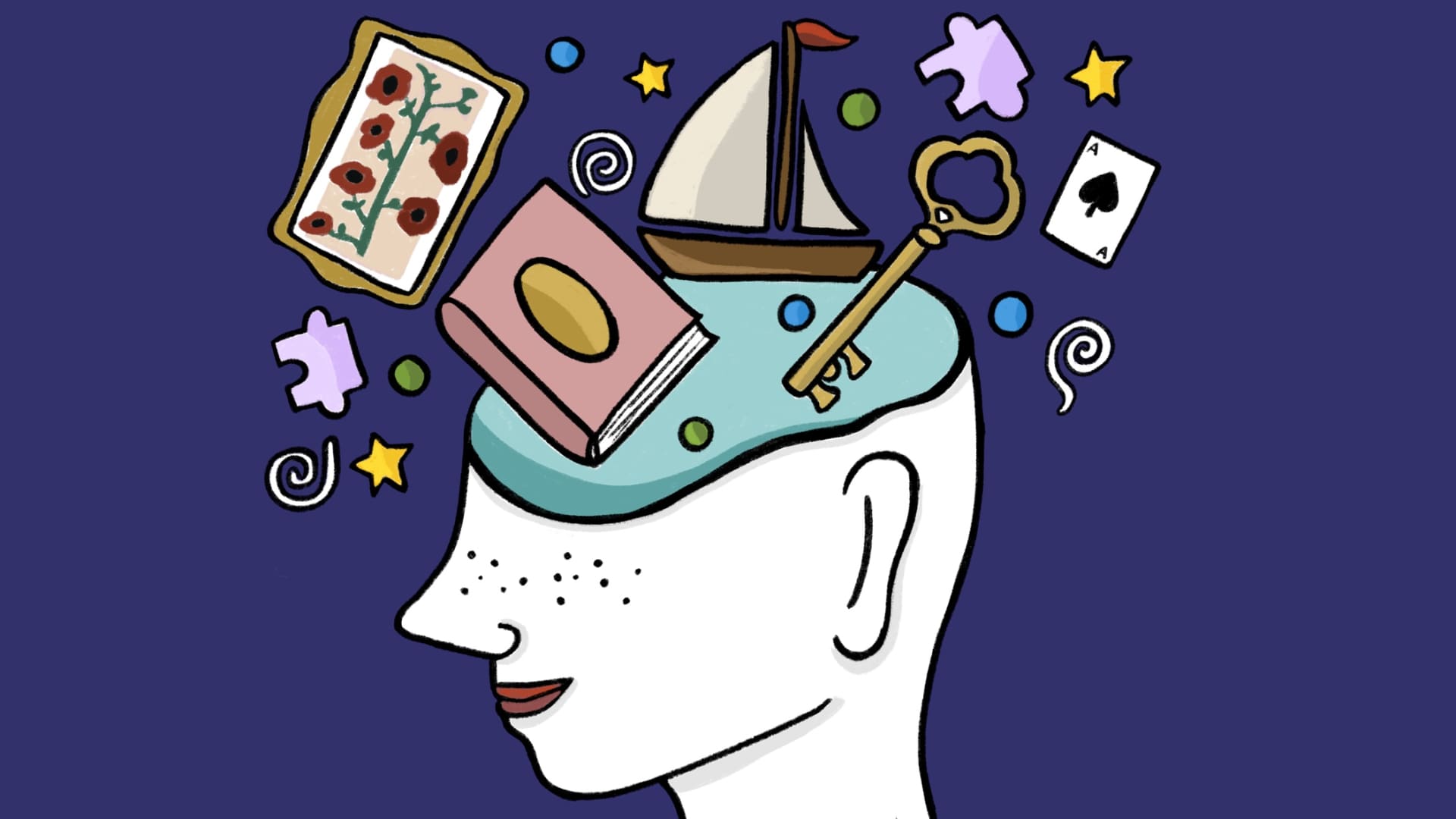
Like any other part of your body, your brain needs daily exercise. Neglecting your brain health can make you vulnerable to degenerative brain diseases like Alzheimer’s and other forms of dementia.
As a neuroscientist, I’ve spent decades guiding patients with memory problems through brain-enhancing habits and exercises — many of which I practice, too.
Here are seven brain rules I follow to keep my memory sharp as a whip at 81 years old:
1. Choose fiction when you can.
You can learn a lot from non-fiction works, but they are often organized in ways that allow you to skip around based on personal interests and previous familiarity with the subject.
Fiction, on the other hand, requires you to exercise your memory, as you proceed from beginning to end and retain a variety of details, characters and plots.
Incidentally, I’ve noticed over my years as a neuropsychiatrist that people with early dementia, as one of the first signs of the encroaching illness, often stop reading novels.
2. Never leave an art museum without testing your memory.
“Western Motel” by Edward Hopper 1957. Oil on canvas, 30 1/4 x 50 1/8 inches (77.8 x 128.3 cm). Located in the Yale University Art Gallery, New Haven, Connecticut, USA. (Photo by VCG Wilson/Corbis via Getty Images)
Fine Art | Getty
My favorite painting to do visualization exercises with is Edward Hopper’s “Western Motel,” which depicts a woman sitting in a sunlit motel bedroom.
Start by intently studying the details until you can see them in your mind’s eye. Then describe the painting while looking away from it.
Illustration: Olivia de Recat for CNBC Make It
Did you include the tiny clock on the bedside table? The gooseneck lamp? The piece of clothing on the chair at the lower right of the painting? Can you recall the colors and the composition of the room?
You can do this with any piece of art to boost your memory.
3. Keep naps under 90 minutes.
Naps lasting anywhere from 30 minutes to an hour and a half, between 1:00 p.m. to 4:00 p.m., have been shown to increase later recall for information encoded prior to the nap.
Several studies have also found that naps can compensate for poor sleep at night. If you struggle with insomnia, a mid-afternoon nap can boost memory performance.
Over the years, I’ve trained myself to nap for exactly half an hour. Some people I know have learned to nap for only 15 minutes, and then wake up refreshed and reinvigorated.
4. No party is complete without brain games.
My favorite activity is “20 Questions,” where one person (the questioner) leaves the room and the remaining players select a person, place or thing. The questioner can ask up to 20 questions to guess what the group decided.
Success depends on the questioner’s ability to keep clearly in mind all of the answers and mentally eliminating possible choices on the basis of the answers.
Bridge and chess are also great for exercising your memory: In order to do well, you have to evaluate previous games, while also considering the future consequences of your decisions in the past and present.
5. Eat brain foods.
Dr. Uma Naidoo, a nutritional psychiatrist at Harvard Medical School, has a great acronym for a BRAIN FOODS:
- B: Berries and beans
- R: Rainbow colors of fruits and vegetables
- A: Antioxidants
- I: Include lean proteins and plant-based proteins
- N: Nuts
- F: Fiber-rich foods and fermented foods
- O: Oils
- O: Omega-rich foods
- D: Dairy
- S: Spices
And good news for chocoholics (like me): A 2020 study found that cocoa flavonoids, the ingredients in dark chocolate, can enhance episodic memory in healthy young adults.
6. Use images for hard-to-remember things.
My wife’s dog, Leah, is a Schipperke (pronounced “SKIP-er-kee”). It is a distinctive name, but I’d have the hardest time remembering it. So to finally be able to answer “What kind of breed is that?” at the dog park, I formed the image of a small sailboat (small dog) with a burly skipper holding a huge key.
Get in the habit of converting anything which you find hard to remember into a wild, bizarre or otherwise attention grabbing image.
7. Don’t sit on the couch all day.
One recent study of 82,872 volunteers found that participants 80 years or older who engaged in moderate to high level of physical activity were at lower risk for dementia, compared with inactive adults aged 50 to 69 years.
Even just a shift from sedentary non-activity (prolonged sitting, a “never walk when you can drive” attitude), to active movement (standing, climbing stairs, walking a mile daily) made a difference.
Housework has also been linked to higher attention and memory scores and better sensory and motor function in older adults.
Dr. Richard Restak, MD, is a neuroscientist and author of 20 books on the human brain, including “The Complete Guide to Memory: The Science of Strengthening Your Mind” and “Think Smart: A Neuroscientist’s Prescription for Improving Your Brain’s Performance.” Currently, he is the Clinical Professor of Neurology at George Washington Hospital University School of Medicine and Health Sciences. In 1992, Dr. Restak was a recipient of The Chicago Neurosurgical Center’s “Decade Of The Brain Award.”
Don’t miss:





